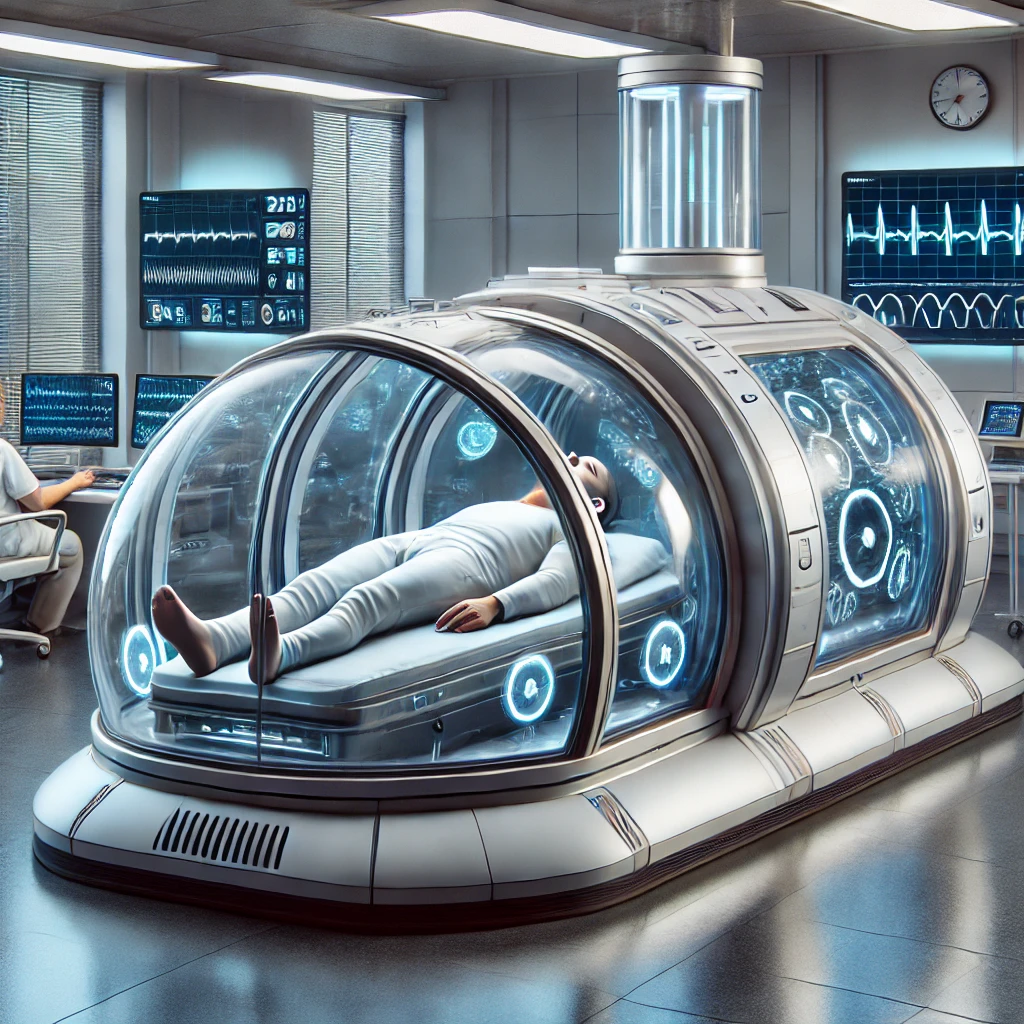Hyperbaric Oxygen Therapy (HBOT) has gained recognition for its potential benefits in treating a variety of medical conditions. From wound healing to neurological recovery, HBOT is being increasingly utilized. However, one question that often arises is: does hyperbaric oxygen therapy always make you tired? While fatigue can be a side effect, it is not a universal experience. In this blog, we will explore the causes of post-HBOT tiredness, how it affects different individuals, and what can be done to manage it effectively.
What Is Hyperbaric Oxygen Therapy?
Hyperbaric Oxygen Therapy involves breathing in 100% oxygen in a pressurized chamber. This process allows oxygen to dissolve into the plasma, increasing oxygen delivery to tissues and aiding in faster healing. It is commonly used for conditions like chronic wounds, carbon monoxide poisoning, radiation injuries, and even neurological disorders.
HBOT works by significantly increasing the amount of oxygen dissolved in the blood, which enhances cellular repair and immune response. It is also used as an adjunctive therapy for conditions such as decompression sickness, burns, and severe anemia. Due to its wide range of applications, HBOT is continuously being researched to explore its potential for other medical conditions, including neurological disorders like Alzheimer’s and Parkinson’s disease.
Why Do Some People Feel Tired After HBOT?
Many patients report feeling fatigued after undergoing HBOT. While this can be concerning, there are several physiological reasons behind this response:
1. Increased Oxygen Consumption
The therapy enhances oxygen levels in the body, stimulating cellular metabolism. This means the body is working harder to repair and regenerate tissues, which can lead to temporary fatigue. The increased oxygen levels also trigger metabolic processes that may temporarily strain the body’s energy reserves.
2. Detoxification Process
HBOT promotes detoxification by increasing oxygen supply, which helps flush out toxins. As the body eliminates these toxins, some individuals experience fatigue similar to the effects of detox diets or cleanses. This process can also cause mild flu-like symptoms in some individuals as the body processes and eliminates built-up toxins.
3. Neurological Adjustments
The therapy also affects the nervous system, sometimes inducing relaxation. This can cause a feeling of drowsiness, similar to what happens after deep meditation or relaxation exercises. Some patients describe a feeling of mental fog or reduced alertness immediately after sessions, which typically resolves within a few hours.
4. Individual Responses to Pressure Changes
Not everyone reacts the same way to the increased atmospheric pressure in a hyperbaric chamber. Some individuals may feel more drained than others due to their unique physiological makeup. Variations in blood pressure, oxygen utilization, and even hydration levels can contribute to different experiences with post-HBOT fatigue.
Managing Post-HBOT Fatigue
While does hyperbaric oxygen therapy always make you tired is a common concern, there are steps to reduce post-therapy fatigue:
1. Stay Hydrated
Ensuring adequate hydration before and after therapy helps flush out toxins efficiently and keeps energy levels stable. Dehydration can exacerbate fatigue, so it is essential to drink plenty of water throughout the day.
2. Maintain a Balanced Diet
Consuming nutrient-rich foods, including proteins, healthy fats, and complex carbohydrates, can support recovery and reduce fatigue. Foods rich in antioxidants, such as berries, nuts, and leafy greens, can also aid in reducing oxidative stress.
3. Get Enough Rest
If you feel tired after a session, allow your body to recover with proper sleep. Overexerting yourself may prolong fatigue. A short nap after a session or engaging in light activities like walking can help restore energy levels.
4. Gradual Exposure to HBOT
For those who experience persistent tiredness, starting with shorter sessions and gradually increasing the duration may help the body adapt. If fatigue is a significant concern, consulting with a specialist to adjust the treatment plan might be beneficial.
5. Engage in Light Physical Activity
Mild movement, such as stretching or yoga, can help re-energize the body and improve circulation after a session. Avoiding heavy workouts immediately after treatment can prevent excessive fatigue.
When Should You Be Concerned?
While mild fatigue after HBOT is normal, excessive tiredness lasting for days could indicate an underlying issue. If you experience severe exhaustion, dizziness, or other concerning symptoms, it is best to consult a medical professional.
Additionally, if fatigue is accompanied by headaches, nausea, or cognitive impairment, it may indicate an issue related to oxygen toxicity or individual sensitivity to HBOT. Monitoring symptoms and reporting any unusual effects to a healthcare provider ensures safe and effective treatment.
Benefits of Hyperbaric Oxygen Therapy Despite Fatigue
Despite potential fatigue, HBOT has several benefits, including:
- Enhanced wound healing and tissue regeneration
- Improved neurological function for stroke and traumatic brain injury patients
- Reduced inflammation and pain relief for chronic conditions
- Boosted immune function
- Increased collagen production for improved skin health
- Better oxygen delivery to vital organs, improving overall well-being
If you are considering HBOT and have concerns about fatigue, consult an expert at Interstate Pulmonary Associates to discuss your specific health needs.
Final Thoughts
So, does hyperbaric oxygen therapy always make you tired? The answer is not straightforward. While some individuals may feel fatigued due to increased oxygen metabolism and detoxification, others experience an energy boost. Fatigue is often temporary and can be managed with proper hydration, nutrition, and rest.
If you have questions or want to explore HBOT further, contact the experts at Interstate Pulmonary Associates today. Their team can guide you through the process and help determine if HBOT is right for you.
